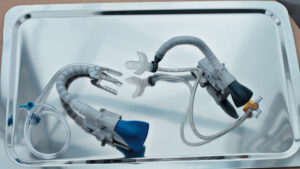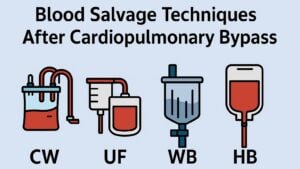Background: The SARS-CoV-2 pandemic resulted in shortages of supplies, which limited the use of extracorporeal membrane oxygenation (ECMO) support. As a contingency strategy, polypropylene (PP) oxygenation membranes were used. This study describes the clinical outcomes in patients on ECMO with PP compared to poly-methylpentene (PMP) oxygenation membranes.
Methods: Retrospective cohort of patients in ECMO support admitted between 2020 and 2021.
Results: A total of 152 patients with ECMO support were included, 71.05% were men with an average age of 42 (SD 9.91) years. Veno-venous configuration was performed in 75.6% of cases. The PP oxygenation membranes required more changes 22 (63.1%), than the PMP Sorin® 24 (32,8%) and Euroset® 15 (31,9%) (p.0.022). The main indication for membrane change was low oxygen transfer for PP at 56.2%, Sorin® at 50%, and Euroset® at 14.8%. Renal replacement therapy was the most frequent complication with PP membrane in 22 patients (68.7%) Sorin® 25 patients (34.2%), and Euroset® 15 patients (31.9%) (p 0.001) without statistically significant differences in mortality.
Conclusion: PP oxygenation membranes was a useful and feasible strategy. It allowed a greater disponibility of ECMO support for critically ill in a situation of great adversity during the SARS-CoV-2 pandemic.
Keywords: Complications; ECMO; Poly-methylpentene membranes; Polypropylene membranes; SARS-CoV-2.







